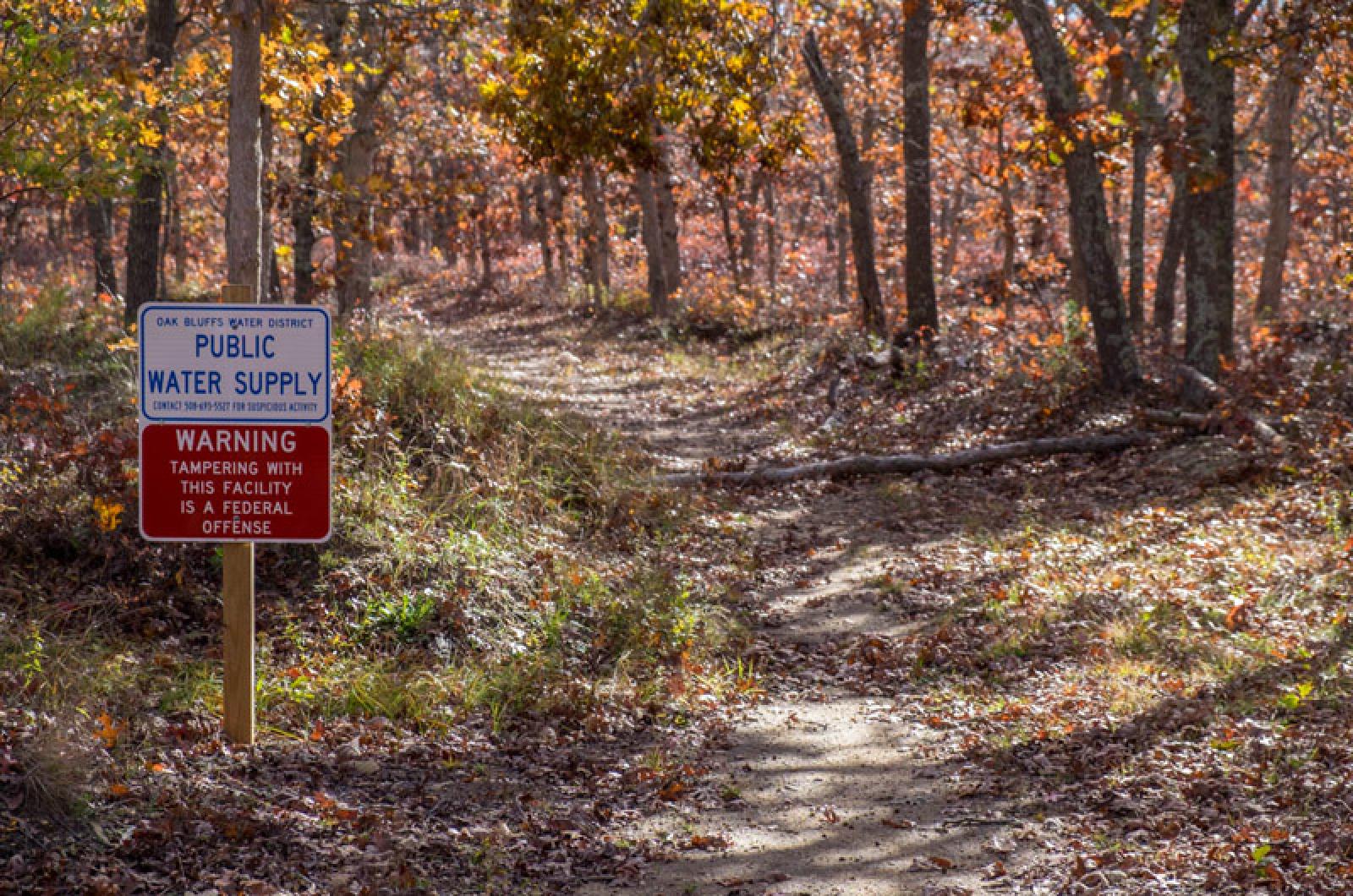Controversial plans for a solar array on forested land in Oak Bluffs are headed for a vote at the Martha’s Vineyard Commission following a months-long review process.
The Oak Bluffs water district wants to clear 10 acres of a 56-acre site it owns abutting the state forest for the town’s first municipal solar array. The district estimates it will save some $800,000 in electricity costs over the next 20 years. The commission is reviewing the project as a development of regional impact (DRI). A series of public hearings have been held.
Among other things, the plan has been vehemently opposed by two leading Island ecologists, who say clearing 10 acres of ancient forest would outweigh the benefits of generating clean, renewable energy. Tim Boland, executive director of the Polly Hill Arboretum, and David Foster, director of Harvard Forest, have submitted extensive testimony against the project.
At a final public hearing last week, the commission heard testimony from an Amherst consultant hired by the Oak Bluffs water district who countered those claims. Steve Johnson of New England Environmental Inc. said that while the land has likely been cleared in the past, its intact soils qualify it as ancient woodland. But he said clearing the land would have no significant effect on the soil chemistry, and that the forest could be restored to a similar state in 60 to 70 years.
“The ecological functionality of these intact soil types really don’t differ from the disturbed soils if they are planted with native species again,” Mr. Johnson said. Plans call for replanting the area underneath the solar panels with a native seed mix.
Mr. Boland disputed Mr. Johnson’s report.
“Grass does not work as well as a forest,” he said, referring to its ability to improve groundwater quality. “That’s just simply a bad summation.” He added that without woody vegetation, “you are going to have the battle of your life with invasive plants.”
Mr. Foster did not attend the hearing but submitted a three-page written rebuttal to the report.
Commissioners also grappled with the legal question of whether the water district land could in fact be cleared for the project without an act of the state legislature since it is designated as permanently protected land for protecting the sole-source aquifer. There are opinions from attorneys on both sides about whether the land is protected by article 97 of the state constitution. Commission executive director Adam Turner said there is no clear answer.
The hearing was closed. The project now goes to the commission’s land use planning subcommittee for review and recommendations before heading to the full commission for a vote. No meetings have been scheduled yet.




Comments
Comment policy »